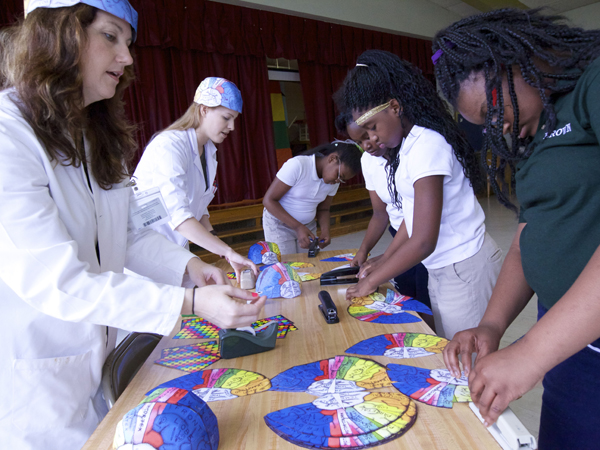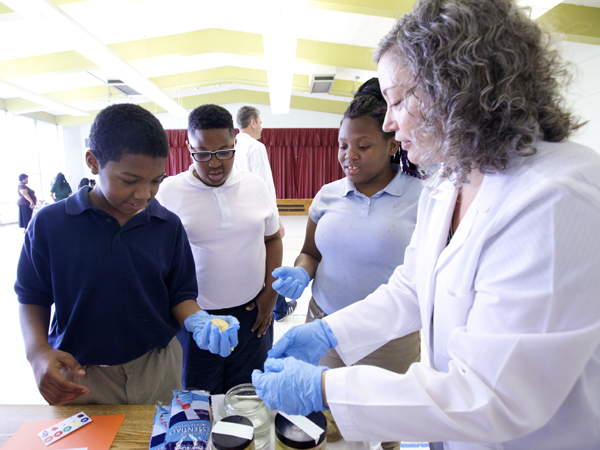UMMC, Millsaps volunteers give students a piece of their minds

The small gymnasium at Brown Elementary School in Jackson was filled on March 20 with the chatter of students, a typical scene at any school in the country. But these children weren't talking about a history test or after-school plans.
Instead they were jumping around to different stations, each covered with educational items to teach about the complexity that is the human brain.
As part of Brain Awareness Week, students and faculty at the University of Mississippi Medical Center and Millsaps College volunteered to expose first- and fifth-grade elementary students to some basic neuroscience concepts.
"I think many people are intimidated by neuroscience, and this event is part of making it more accessible which is really important," said Mike Schmidt, a Ph.D. candidate and graduate assistant at UMMC in neuroscience.
Sponsored by the Dana Foundation, Brain Awareness Week is the global campaign to increase public awareness of brain research.

While UMMC has led the charge for years with this community outreach event, Millsaps joined four years ago when the college established Mississippi's only neuroscience undergraduate major and minor program, said Dr. Melissa Lea, associate professor of psychology and neuroscience and director of Neuroscience and Cognitive Studies at Millsaps.
Schmidt said the volunteer-only event also has benefits for the students and scientists who participate. "In general, we don't do well in our jobs with communicating to the public what we do."
By teaching students about the brain, the event puts researchers and graduate students out in the community to talk about their field of study. "It's a very important part of the curriculum," Schmidt said of the volunteers learning how to spread knowledge about their work.
For some of the elementary students, the hands-on approach with animal brains at one educational station was enlightening, if not a tad icky.
After touching the monkey brain, fifth-grader Cortex Daniels proclaimed, "I will never touch a monkey brain again."
But his classmate, Arkayla Womack, was more interested in finding the right words to describe the texture of the brain. "I mean, it's gooey. But I'd say it's gushy to the touch," she added, her eyes widening with each new "gross" adjective.
Those early interactions - and fascinations - were what peaked the scientific interests of Natalie Booker, who earned a master's degree in biological science from Mississippi College.
Booker now works as a research assistant in neurobiology at UMMC, a position she partially credits to her grade-school teachers for getting her interested in science.
"I think it's important kids start thinking about science at an early age," said Booker. "A teacher introduced me at an early age, and that's why I'm here."
The Brain Awareness Event is one that helps create the next generation of scientists, said Booker.
"We're coming out in the community to these schools where kids don't always get the big picture," said Booker. "We're showing them there's something more out there."


